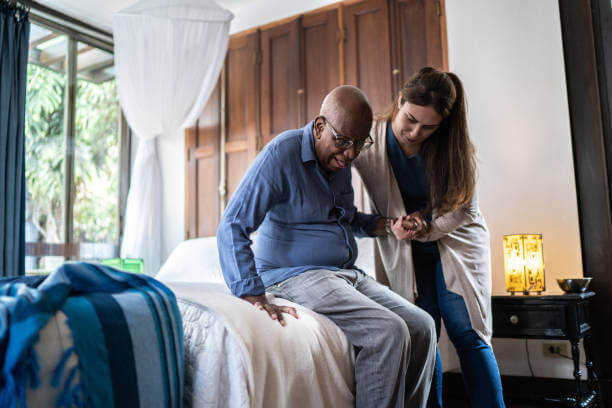Seniors and family caregivers often find it difficult to discuss plans of action for when the elderly family member is incapacitated or no longer able to speak for themselves. It’s a challenging subject, but one worth tackling before it’s needed. If you don’t, the circumstances can be dire.
The Health Insurance Portability and Accountability Act of 1996, better known as HIPAA, was designed to protect a patient’s right to privacy by penalizing doctors and other healthcare providers who disclose “protected health information” about their patients. Whenever you go to the doctor, you’ll be prompted to fill out a federally-mandated form that reads, “HIPAA Notice of Privacy Practices.” Patient confidentiality is generally a good thing. No one has the right to know my medical prognoses, see my prescriptions, or discuss my medical treatments unless they have my written approval. But what if a person can’t give that approval?
There are plenty of HIPAA horror stories out there. Imagine the story of the woman whose mother wound up in the ER after suffering a stroke. She approaches the nurse’s station, frantic about her mother’s condition and is met with a sympathetic shrug of the shoulders and, “I am sorry, I am not authorized to give you that information.” By law, unless the woman and her mother had a Power of Attorney for HIPAA release, no one in that hospital can discuss her medical condition with outside parties—even the woman’s own daughter.
Caregiverlist®, in it’s ongoing mission to care for the caregiver and make life just a little easier for seniors and their families, has worked with Law Depot to provide you access to senior care legal documents to help facilitate elder care.
In the case of Power of Attorney for HIPAA Release, it is imperative to have all legal documents in place as, in most cases, the patient is not a position to give their verbal instructions. Do it in order to lessen the burden on family members during an already stressful time. In addition to the providing all medical professionals the “release of information” paperwork, it’s also important for the senior and their proxy to discuss and fill out a Last Will and Testament and a Living Will for end-of-life medical treatment requests.
Learn more about HIPAA at the Department of Health and Human Services’ Office for Civil Rights website at www.hhs.gov/ocr/hipaa.
Main Menu
Main Menu
Main Menu







